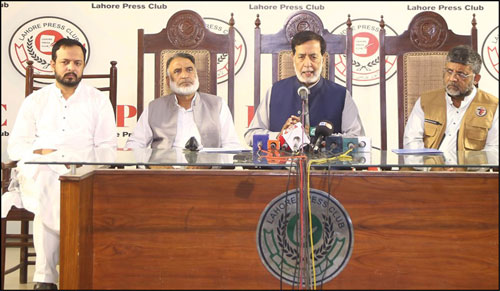President Alkhidmat Foundation M. Abdus Shakoor and Executive Director Zakat Foundation America Farrukh Raza participated in the press conference. While speaking to the press conference Farrukh Raza said that Zakat Foundation America would collaborate with Alkhidmat to distribute 140 ton rice among the flood affectees. Zakat Foundation of America is a US-based, Muslim-run charity organization that channels the spirit of Zakat into vision of social development in Pakistan and beyond.
Amidst recent floods in Pakistan, Zakat Foundation also joined Alkhidmat Foundation in carrying out relief activities and now further extending its hand to distribute 140 ton rice among 10 thousand families in 32 flood-hit districts across Balochistan province. In addition, Zakat Foundation has also shown interest to closely work with Alkhidmat for the rehabilitation of the flood affectees.
Speaking on the occasion, M. Abdus Shakoor said that native and overseas Pakistanis had banded together to assist Alkhidmat Foundation flood relief work across Pakistan. Zakat Foundation America is working side by side with Alkhidmat to help flood affected brothers and sisters in Pakistan, he added.
While talking about Alkhidmat ongoing relief activities he said that Alkhidmat has been on the ground since the onset of monsoon rains and floods, and has been carrying out relief activities in flood-affected areas with the help of thousands of volunteers; by using ambulance service and boats. Alkhidmat has set up ten villages for displaced families and is providing affectees with constant supply of cooked food, clean drinking water, medical aid as well as tent schools for children, he shared.
In addition, 13 water filtration plants have been fixed in flood-hit areas, aside from sending seven mobile water filtration plants to deliver clean drinking water in the remote areas, he said.
Furthermore, five field hospitals have been set up; each in District Sukkur, Dadu, Naseerabad, Quetta and Dera Ismail Khan. Nevertheless, mobile health units are playing a vital role to help us provide urgent health services in remote areas, he concluded.










